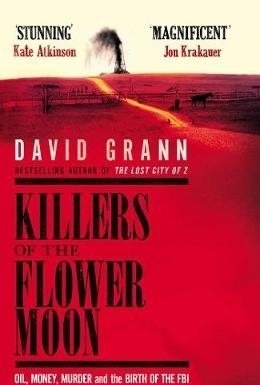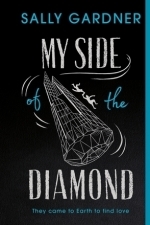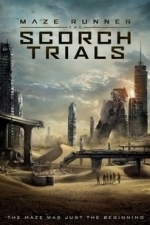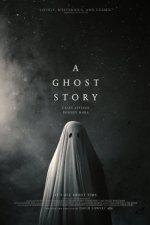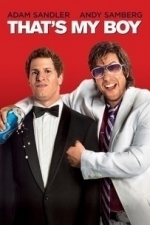Chris Sawin (602 KP) rated Transformers (2007) in Movies
Jun 19, 2019 (Updated Jun 22, 2019)
The film revolves around the Autobots fighting off the Decepticons from gaining possession of the Allspark, which has the power to save them from extinction or grant them ultimate power. Optimus Prime, the leader of the Autobots, is trying to save Cybertron (their home planet) while Megatron, the leader of the Decepticons, wants to conquer the universe and will do whatever it takes to accomplish that goal. In 1935, Megatron had found the Allspark on Earth in the Arctic Ocean, but was eventually frozen in his quest to capture it. Megatron used the last of his energy to embed the location of the Allspark in the glasses of a captain who accidentally found Megatron buried deep beneath the ice. That captain was the great, great grandfather of Sam Witwicky who is now in possession of said glasses. In the present day, Sam's father buys Sam his first car; a yellow Camaro which turns out to be Autobot, Bumblebee. As the Transformers arrive on Earth, their first objectives are to find Sam Witwicky, acquire possession of the glasses, and hopefully attain an advantage over their enemy.
The movie relies solely on giant robots fighting each other to be the selling point of the film, so if you're expecting much else story-wise then you'll probably walk away from the film disappointed. The special effects are top notch as the Transformers themselves look incredibly realistic. Scenes in other films that rely heavily on characters that are purely computer generated have a sense of being unrealistic since it's usually noticeable that the actors on screen are reacting to something that isn't really there. CGI characters don't usually look this good though. Most of the time, when the actors interact with the computer generated characters, those actors also become computer generated. Like when Doctor Octopus carries Mary Jane up a skyscraper after kidnapping her from the coffee shop in Spider-Man 2 is a great example. They're both noticeably computer generated. While in Transformers, the actors either weren't CGI or the effect was achieved to a greater degree because it looked phenomenal and believable the entire time. As believable as transforming robots can be anyway. The fight scenes between the Autobots and the Decepticons are where the movie hooks its audience though. There is so much going on that the movie requires multiple viewings just to see everything that's going on.
While Transformers is an incredibly fun ride, it does have its down side. The humor of the film is often on the cheesy side and not really funny at all ("I NEED A CREDIT CARD," the entire Glen Whitmann character, Jazz's dialogue, "This is easily 100 times cooler than Armageddon," etc). A trait that seems to carry over into Revenge of the Fallen as the same sense of humor is in the trailer footage. Another issue is the action scenes. While they are intriguing, they're also incredibly confusing most of the time. The camera is almost always too close during those sequences and telling the difference between an Autobot and a Decepticon while they're rolling around in the air is near impossible. The camera looks like it's pulled out a bit in Revenge of the Fallen, so hopefully that problem has been addressed and taken care of. Looks like we'll find out June 24th.
Despite hardcore Transformers fans being displeased (to say the least) with the film, it can't be denied that the 2007 film was one of the biggest blockbuster films at the box office that year. Transformers is exciting and action packed from beginning to end. It is basically a two and a half hour adrenaline rush. So, bottom line, see Transformers if you're looking for an action packed adventure that'll make your heart race and put you on the edge of your seat.
Suswatibasu (1703 KP) rated Killers of the Flower Moon: The Osage Murder and the Birth of the FBI in Books
Nov 24, 2017 (Updated Nov 24, 2017)
This fantastic book relates to a story covered in blood, racism and greed. Oil, black gold, made the Plains Osage tribe incredibly wealthy. By the 1890's, the remnants of this great people were in the scrub lands of Northern Oklahoma.
Their life was continually harsh, the soil poor. In the late 1890's, by chance, oil was struck in Osage County, flowing in abundance and in great demand. From 1918 to 1928, $202 million was paid to the tribe which by then numbered around 3000, transforming their lives. 680 barrels were obtained in a day in 1920 from a strike at Burbank, angering the whites and thus began the "Reign of Terror" in which hundreds of the Osage tribe members were subsequently killed in the most horrendous display of corruption.
The book itself begins in 1921 with an Osage woman who had a share of the mineral riches to be found under the Osage land. Mollie like others was subject to a law that treated her tribe as juveniles whose estates had to be administered by white guardians, that is local lawyers and businessmen, appointed by local courts.
Guardianship was unpoliced and few records were kept. Fraud was therefore prevalent and many of the local white community participated in corruption - murder was widespread as a result. Mollie's sister, Anna, was the first noticeable murder in which she was shot and killed, launching a major probe into similar killings in the area. Many other murders were committed over the following years, with poisoning as the most common method of killing. Essentially it was a covert form of genocide.
The locals refused to act, partly due to fear or involvement in this heinous plot, so J. Edgar Hoover, who was the first president of the FBI, became involved in the investigation. He sent a tall Texas Ranger called Tom White to scrutinise an epic series of murders in which even investigators were targets.
What follows is not only history but a riveting detective story and the book demonstrates yet again the enormous cost of American nationhood. It provides some fascinating insight into the early workings of the FBI (not least Hoover's nascent megalomania) for whom this was a celebrated case and a valuable reminder for folk who thought the persecution of American Indians ended in the late 19th century. Author and journalist David Grann does a superb job in collating all of the information with dozens of pages solely highlighting attributions and references - it is thorough and well-researched. Therefore it is hardly surprising that Hollywood has snapped up this book to turn it into a major motion picture - let's hope they don't whitewash history once again.
Hazel (1853 KP) rated My Side of the Diamond in Books
Sep 16, 2017
My Side of the Diamond is the latest novel by British author Sally Gardner. Employing the use of science fiction, Gardner explores the concept of love in a unique tale of a covered up alien invasion. The main characters are unfortunately caught up in the drama; however, no one will ever believe their story.
Jazmin Little’s best friend, Becky, has disappeared. Some say she was murdered, others claim she committed suicide, but what everyone agrees on is that she jumped from the top of the Shard in London, but never landed. Jazmin knows what happened but the authorities have torn her witness statement to shreds. Now everyone believes that she is the cause of Becky’s disappearance.
The reader plays an active role as the mysterious Mr. Jones who is interviewing a handful of characters involved with the mystery surrounding Becky’s fate. Jazmin and the others tell the reader, as Mr. Jones, the truth about the lead-up to the moment their lives changed forever. Jazmin explains the events that preceded Becky becoming infatuated with the enigmatic Icarus. From their first meeting, bizarre and frightening things began to occur. From Becky’s sudden recovery from anorexia as though she had just had an epiphany, to being chased by an impossible monster, the friends and their relatives are suddenly in serious danger.
Icarus claims to be an alien who has come to Earth to learn about love. Becky instantly believed him, however, Jazmin and the others remained sceptical. As they open up to Mr. Jones, they wish they could go back in time and change the way things panned out. In hindsight, they know who was good and who was bad, but at the time, it was impossible to know whom to trust.
Although the main story focuses on the relationship between Becky and Icarus and their resulting disappearance, Gardner also explores themes of social classes and friendship. Jazmin and Becky were polar opposite: Becky came from a family made of money, whereas Jazmin was lucky to have a can of baked beans for dinner. Despite this, they were best friends who did not let their backgrounds interfere with their relationship. The significance of their social class comes to light as Jazmin explains what happened at the trial after Becky’s disappearance. Being from such a low caste, it was easy for everyone to pin the blame on Jazmin.
The concept behind My Side of the Diamond is interesting, as is the method of narrating the story, however, it lacks any emotional connection. Mr. Jones, although having no dialogue of his own, comes across as an impassive character, and that is how I felt whilst reading the book. None of the characters were particularly relatable and it was difficult to care about what happened to them. Their circumstances were creepy, but also far-fetched and hard to comprehend.
Although Sally Gardner’s ideas are good, My Side of the Diamond is a disappointment, especially coming from a prize-winning author
Movie Metropolis (309 KP) rated Maze Runner: The Scorch Trials (2015) in Movies
Jun 10, 2019
The Maze Runner was a decent, albeit muddled attempt at getting the coveted young adult audience interested in another series and its sequel, The Scorch Trials promises more of the mind-blowing storytelling of its predecessor, but is it a success?
The plot of Scorch Trials takes place immediately after the events of the previous instalment as a group of teenagers battle against the sinister W.C.K.D, an organisation intent on finding a cure for a virus that has ravished Earth.
Amongst them is leader Thomas (Teen Wolf’s Dylan O’Brien), the Katniss Everdeen of this particular series, Theresa (Skins’ Kaya Scodelario) and Newt (Love Actually’s Thomas Brodie-Sangster). There are numerous other characters in the group but they aren’t fleshed out enough to make an impact on screen.
Unfortunately, character development is a serious problem throughout, with only a handful of the large cast having enough of a backstory to make the memorable. O’Brien is particularly likeable as the confused Thomas and his more reserved persona is a pleasant change to the majority of lead characters in the genre.
Of the adult cast, Aidan Gillen does a sterling effort as the mysterious Janson and Giancarlo Esposito is perhaps the best character in the entire film with his portrayal of Jorge – a bargain hunter and ally of the group.
A much larger budget has done wonders for the series’ set-pieces. This is a particularly striking movie with numerous heart-racing action sequences filmed with a mixture of stunning CGI and breath-taking practical effects, a desert thunderstorm is beautifully filmed and a particular highlight.
The desolate landscapes and ruined cities give the film more than a whiff of Mad Max and I Am Legend with the latter being very similar.
These pulse-raising scenes do not do Scorch Trials’ dialogue any good however. The characters don’t get much to say apart from “Run” and “Look out” and the series lacks the powerful communication that The Hunger Games has become known for.
Nevertheless, those coming to the series without reading the books will find much to enjoy here as the plot is impossible to guess – there’s simply no way of knowing what is going to happen from one moment to the next.
It’s worth noting that this is a very dark film with a tone unlike anything else seen in the genre. The 12A certification given to it seems a little too lenient and in parts The Scorch Trials is deeply unnerving.
Maze Runner: The Scorch Trials is, on the whole, a fantastically enjoyable romp in spite of its excessive length and flat characters. It’s not quite up to the standards of The Hunger Games series but surpasses its Divergent franchise counterparts by some margin and is well worth a trip to the cinema.
https://moviemetropolis.net/2015/09/13/a-vast-improvement-maze-runner-the-scorch-trials-review/
Darren (1599 KP) rated A Ghost Story (2017) in Movies
Jun 20, 2019
When M leaves the home, C is seemingly stuck bound to the house for all time as he goes through different households and his only communication comes from a fellow ghost trapped in the neighbouring house, but C is determined to stay for the one he loves even through all the changes the environment around him goes through.
Thoughts on A Ghost Story
Characters – C is the husband of M that dies, he finds himself coming back as a ghost to watch over his wife but soon finds himself alone once she leaves their home, he sees different lives enter his as he waits for her to return. M is the wife that can’t cope with her husband’s death, she tries to move on but without any hope, so to get away completely she leaves the home. The two do make for a good screen couple.
Performances – Rooney Mara is good in her role even if she is only in part of the film, it is Casey Affleck who must wear a sheet for the most part of this movie that doesn’t say anything but lives a lonely life watching other lives.
Story – The story here is difficult to describe as for the most part we just follow C the ghost with the bed sheet over his head watching every moment of this one location, wait for a chance to be with his love again. This isn’t a horror though it plays into deeper meanings that when you watch the full film you will get rewarded by, but it can be slow getting there. This is a story that will make you think about life and death which is one you need to watch to enjoy.
Fantasy/Romance – The fantasy elements of this film come on strong for the second half as we see the journey the sheeted C goes on, the romance side of the film looks at the idea of eternal love that people could have.
Settings – The whole film is set in once location, the background may well change but our character can’t leave the area he finds himself bound too.
Special Effects – Not many effects are used but the ones that are do help the films journey.
Scene of the Movie – The Beginning?
That Moment That Annoyed Me – There is a really long scene of Rooney Mara eating, I think it could have been near 10 minutes long.
Budget: $100,000
Final Thoughts – This is a very different movie, it shows the idea of eternal love from the side of a deceased character. It will make you think and by the end you will feel like you experienced something different.
Overall: Interesting movie that makes you think.
https://moviesreview101.com/2017/09/24/a-ghost-story-2017/
Gareth von Kallenbach (980 KP) rated That's My Boy (2012) in Movies
Aug 7, 2019
Sandler stars as Donny, a down-on his luck former celebrity who gained notoriety after impregnating his teacher at 13. While the teacher (Eva Amurri Martino) went on to a 30-year prison sentence, Donny used his notoriety to become a pop culture sensation. Unfortunately for Donny fame was fleeting and he wasted the money he had accumulated along the way. We soon learn Donny faces a prison sentence unless he comes up with $45,000 to pay back taxes.
Desperate, he turns to his estranged son Todd (Andy Samberg), who has pretty much disowned his father and does not even go by is given birth name. Todd is about to marry a socialite named Jamie (Leighton Meester), and since he is a numbers genius with an extremely bright future with a partnership pending, the arrival of his crude, drunken father, is a disaster in the making. Passing himself off as long-lost friend, Donny attempts to reconnect with his son and naturally this happens over some very vulgar and awkward moments, not all of which are limited to bachelor party scenes.
Of course anybody who has seen any of Sandler’s films will know the formula that follows: crude situations followed by conflict, mixed with celebrity cameos and an ’80s soundtrack tossed in with a few laughs along the way towards a tidy ending. To say that there is a definite formula to his films would be an understatement and Sandler gives the impression that he’s making up many of the scenes as he goes along, all the while sporting a hybrid Boston/Little Nicky accent.
What ultimately sells the film is the energy and effort that the cast puts into their performances. While the plot can be charitably described as disjointed, there are several scenes that are LOL-inducing, especially those with James Caan as an angry priest and with Vanilla Ice and Todd Bridges lampooning their faded glory.
While the film is a bit cruder than most of Sandler’s usual fare it is, for the most part, good-natured and lighthearted. Obviously nobody is expected to take the film seriously. Samberg does a good job playing the restrained uptight Todd, and in the scenes where he lets loose, shows solid working chemistry with Sandler.
While it is not a great cinematic comedy it certainly has more than its fair share of laughs along the way, just as long as you’re willing to overlook the lackluster plot and uneven pacing of the film.

Nuryl - Cognitive Listening App for Babies
Education and Music
App
Nuryl is a High-Information Music baby app designed to supercharge your baby’s brain during a...

Navitel Navigator Kyrgyzstan
Navigation and Travel
App
Navitel Navigator is a precise offline navigation with free geosocial services and detailed map of...

Navitel Navigator Armenia
Navigation and Travel
App
Navitel Navigator is a precise offline navigation with free geosocial services and detailed map of...

Navitel Navigator Uzbekistan
Navigation and Travel
App
Navitel Navigator is a precise offline navigation with free geosocial services and detailed map of...

